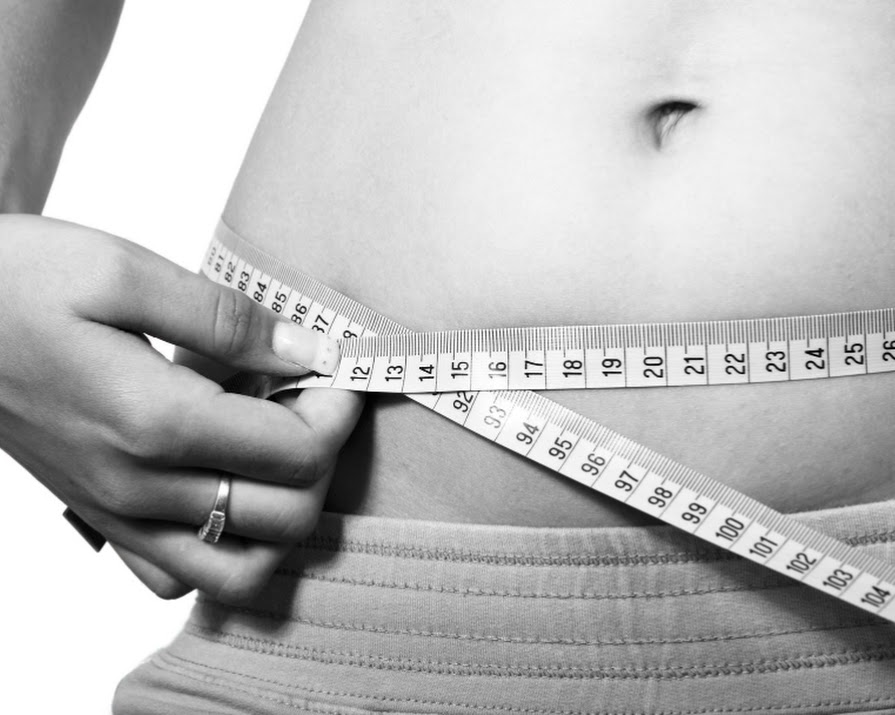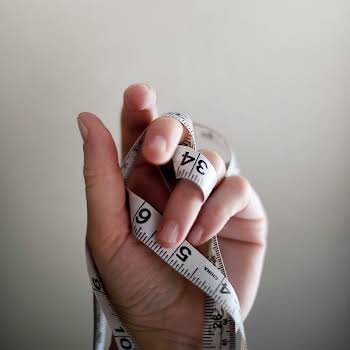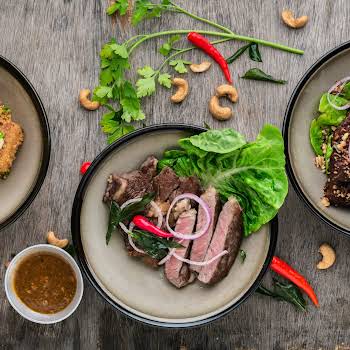
Can we please stop holding up weight loss as the ultimate female achievement?
By IMAGE
12th May 2019
12th May 2019
My big sister showed me how to make a proper cup of tea. She taught me how to budget. She gave me a love of late 90s Jamiroquai. She diligently rifled through the rails at Tammy Girl for me and produced an outfit that offset screamingly cool (at least, they were in 2005) sequin shoes and brown fishnet tights with a neat, white mohair jumper and conservative corduroy midi skirt that meant I looked the belle of the bat mitzvah. She fulfilled every stereotypical big sisterly duty with grace and wisdom that unfortunately didn’t rub off on me.
Being the middle child of three, I’m technically a big sister too, but my little brother is so exponentially cooler than I am that he is still teaching me things: from how to apply flawless under-eye concealer to how to use chopsticks. I’ve been a big sister with training wheels for the last 26 years, but I think I know how I can finally step into the role, at least in a metaphorical sense.
I was really saddened recently to read statistics released by Childline, a counselling service for young people run by the NSPCC, revealing that 88% of the 2,064 counselling sessions on negative body image last year were with young girls. Childline reported that the girls were worried about their weight, about having acne, and about the pressure from TV and social media to be ‘body perfect’. The statistics show that females are still disproportionately affected by body image issues, which, I’m sure you’ll agree, don’t always wear off once you reach adulthood, and can have long-lasting effects on confidence and self-esteem.
The information from Childline frustrated me because we aren’t born hating our bodies; it is a learned behaviour. We, as a society, have created an environment in which bodies are picked apart, pitted against each other and held to increasingly unattainable standards. We’re not born hating our chubby thighs or sucking in our stomachs when we sit down, those are thoughts and actions that are developed in response to the culture in which we live.
Learned behaviour
I learned to be self-conscious about my body when I was a child from comparing it with images on TV and in magazines, yes, but also from the way in which bodies were spoken about by the people around me. I learned that big ankles were bad from it being pointed out at dance class, I learned that thinner was better from the compliments doled out when anyone lost weight, I learned that big arms were ugly purely from how effusively my mother spoke about the forgiving nature of cardigans.
I don’t blame anyone for having spoken this way around me when I was younger, they all learned it from someone too, but now, knowing what I know from having experienced dreadful body image issues and consequent disordered eating, I feel an obligation to do my bit to alter the landscape for the next generation of women.
Related: I’ve been ugly and beautiful and the difference is depressing
Imagine, when you were going through the years of teenage angst, bodily changes and being constantly self-conscious, having a big sister to look up to who didn’t try to hide her stomach or didn’t talk about ‘good’ or ‘bad’ foods or bemoan the fact that she had put on a few pounds. Imagine what a profound effect that would have on the way you thought about bodies and how comfortable you felt in yourself. The fact that young girls these days are bombarded with messages to the contrary from more media sources than ever (when I was a teenager, Bebo was still the height of online sophistication), means that what they hear IRL is more even more important. And so, I think it’s high time for us to step into our collective role as big sister and make some simple changes to cultivate an environment where women aren’t held back by body image issues.
Stop equating fat with bad. Stop using it as an insult, stop framing it as the worst thing that a person can be.
Find some ways to compliment people that aren’t to do with appearance
It’s a cliché, but we could all do with a reminder that it’s what inside that counts. This isn’t to say that you can never say someone is beautiful, but maybe pepper those compliments with others that are nothing to do with the way someone looks. It’s unlikely that you like your friends purely because of how good they look in bodycon, so make sure they know that too. Tell them how much you appreciate their humour, or their kindness, or their enviable organisational skills, as well as how nice their hair looks.
Don’t use fat as a pejorative
Stop equating fat with bad. Stop using it as an insult, stop framing it as the worst thing that a person can be, stop using it as a synonym for greedy or lazy or unattractive- because it simply isn’t and is so unhelpful. Fat is just a noun or a neutral descriptor. The English language is extensive, so I’m sure there’s another way of saying what you want to that doesn’t have to be that three letter word. We pick up these nuances in language and subconsciously harbour the idea that skinny is the right way to be, preempting long-lasting fatphobia and body image issues.
Watch the way you talk about food
Food is, of course, intrinsically linked with the way we talk about bodies. When I was recovering from disordered eating, and trying to alter my mindset on food and my body, women who lead by example and who gleefully ate biscuits without a comment about being ‘naughty’ or had bread without donning a hazmat suit were so helpful in setting up a space where I felt comfortable to do the same. A helpful move to make would be to stop moralising dietary choices as saintly or sinful, or something we’ll have to make up for later.
Don’t compliment people on weight loss
In congratulating people for shedding a few pounds, we imply, intentionally or not, that one should always be in pursuit of a smaller dress size, as well as justifying insecurities that others might have about their bodies.
If we stopped holding up weight loss as the ultimate female achievement, we might create a space where we don’t comment on bodies, harshly judge our own, and set up the next generation of women for a lifetime of worrying about the way they look.























